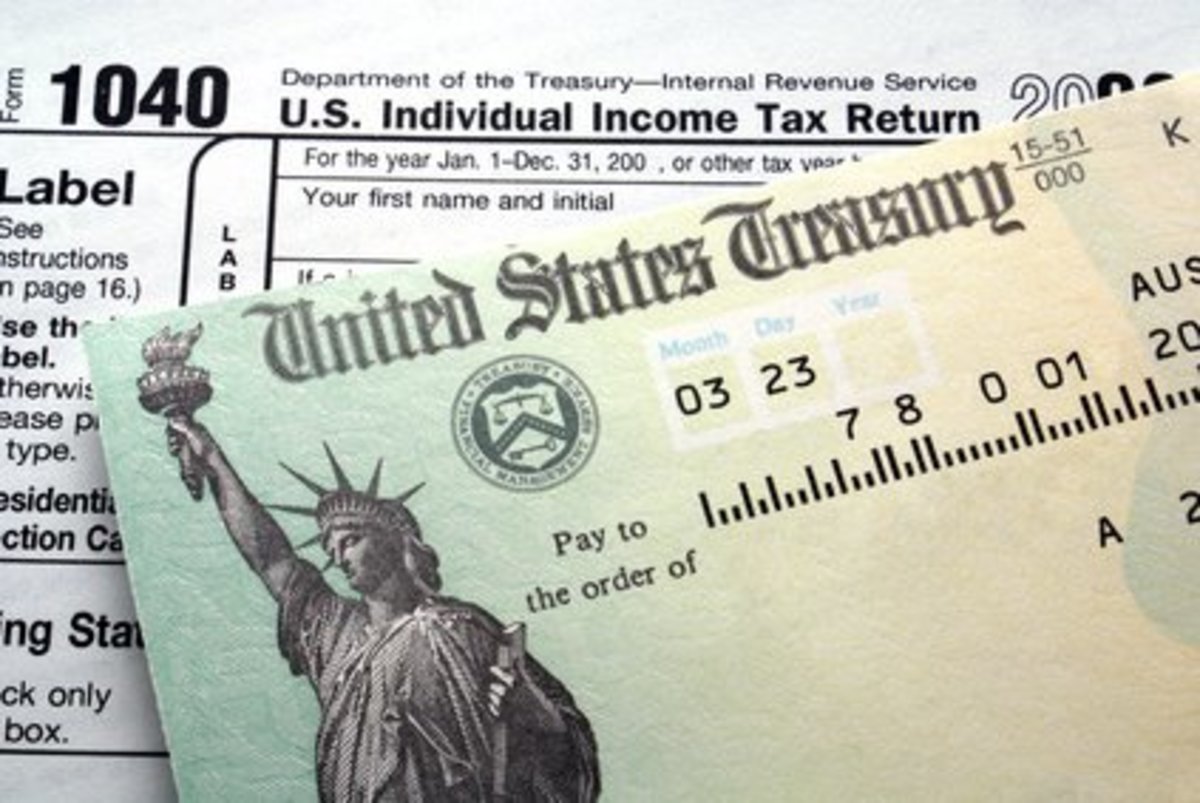Tax Relief: Need a Tax Attorney?
How can a tax relief attorney provide tax help?
You’ve probably seen commercials on television about tax relief as well as for a tax relief attorney or two. Many of these depict people saying something like, “I owed the IRS $20,000, but with help from my tax attorney, I only had to pay $8,000 to settle my tax debt!” You’ve seen these, right? You might be wondering if they’re legitimate, and if the claims made in the commercials are for real. Are tax relief attorneys in the same class as “ambulance chasers,” or are they reputable? And are they worth the fees they charge? How do you find a reputable tax relief attorney? The following information will give you a general overview of the IRS's power, along with ways in which a tax relief attorney might be able to help.

What is a tax relief?
IRS tax relief is when part of the taxes you owe the IRS are forgiven. In some cases of tax relief, your back taxes might never have to be repaid, depending on your individual circumstances. A good tax attorney will investigate all your options and share them with you. Together, you can decide your best plan of action in dealing with back taxes and audits.
What is a tax attorney?
A tax attorney or a tax relief attorney is a lawyer who specializes in tax codes and laws of taxation, especially those involving the IRS. A tax attorney should be well versed in taxpayers’ rights and the ever-changing tax laws, which is no small feat. A tax relief lawyer is often hired by individuals or businesses with tax problems, including IRS audits, back taxes, bank levies, wage garnishments, and property liens and seizures. Anyone needing tax relief can employ the services of such attorneys.
What can the IRS do?
The IRS has an amazing amount of power. If you owe unpaid back taxes and ignore the calls and letters from the IRS, they can issue a bank levy. Before doing so, you’ll get a letter that states that they are planning to use other methods for tax collection, and these "remedies" might include a bank levy. How does this work? Your bank or banks will be notified by the IRS to seize your accounts and turn them over to the IRS, and your bank is bound by law to comply.
Levies don’t always stop with your bank. Just about any other money you have can be subjected to a levy, too. If you have funds in an escrow account or with a stock broker, they can be seized by the IRS. They can even get the deposit you placed with your power company.
The IRS can also garnish your wages. With a wage garnishment, the IRS will send a notice to your employer, instructing him to withhold a percentage of your salary or wages and send them to the IRS. You’ll be left with very little of your usual earnings, and needless to say, most employers frown upon employees whose wages are garnished.
The self-employed can’t escape this, either. If you’re self-employed, you’re your own boss, so obviously, you aren’t going to garnish your own earnings. What the IRS will do in this case is to contact people who owe you money, instructing them to send those funds to the IRS instead of paying them to you.
Think your Social Security check is safe from an IRS garnishment? Think again. If you owe back taxes and haven’t made a satisfactory payment agreement with the IRS, your Social Security benefit will be subject to garnishment. Up to 15% of your monthly check can be paid to the IRS until the tax liability is satisfied or until the statute of limitations – ten years – expires. If the IRS issues a Manual Levy, more than 15% of your Social Security wages – up to 100% - can be seized, according to section 6331(a) of the Internal Revenue Code. If this happens, you can claim an exemption against the levy. The amount for a single taxpayer is $779.17. If your monthly Social Security check is more, the IRS can take anything over the stated amount with a Manual Levy for back taxes.
Can the IRS seize your home? Yes, the IRS can seize your home or any other physical asset you own in order to pay back taxes. Unless you have at least 20% equity in your home, however, the IRS will avoid this difficult procedure. The IRS usually values property at 20% below fair market value, which plays in your favor. For example, if your home is worth $200,000, the IRS will assign a value of $160,000. If the mortgage owed on the house is $150,000, chances that the IRS would seize your home in such a case are almost nil. If your mortgage existed before the IRS lien, it will have priority over the tax lien.
If you own your home free and clear, or if you have only a small mortgage, the IRS can take your house. This is extremely rare, however. The IRS is often reluctant to seize a primary residence because federal laws make it difficult to do so. Second homes, vacation homes, and rental properties, however, are much easier to seize for back taxes purposes.
In rare instances, the IRS can even seize your business for tax liability. Before doing so, the agency will have to get a writ from a federal judge, and every article in the business must be inventoried. If a sale is conducted, all of these articles must be auctioned off. All of this requires a lot of time and effort for the IRS, so it’s seldom done. Of course, that doesn't mean it can't or won't be done. The Internal Revenue Service is serious about back taxes!
In view of the expansive power of the IRS, tax relief attorneys are definitely worth the cost. A tax relief attorney will probably be able to significantly reduce your tax debt and stop garnishments, levies, and liens. They can also provide invaluable help and advice with an IRS audit.
How can a tax attorney help?
If you’ve ever had many dealings with the IRS, you know that it isn’t a pleasant experience. To many American tax payers, the IRS seems like a frightening, omniscient, and omnipotent entity that’s just waiting to pounce on its potential victims. Something like an IRS audit can be extremely stressful, even when you’re completely innocent of any wrongdoing. And when you owe back taxes, the IRS is relentless in collecting its money.
What some tax payers fail to understand, however, is that the IRS is actually made up of human beings. As such, they have the ability to compromise. Of course, just because they have the ability to compromise doesn’t mean that they’ll always be willing to compromise. If you have a knowledgeable tax attorney in your corner, the IRS is usually a lot easier to work with.
IRS audit help
One way a tax attorney can help is if you find yourself facing an IRS audit. A tax audit attorney can lead you through the stressful process of an IRS audit. Tax lawyers know all the ins and outs of such cases. They know and understand your rights as a taxpayer, and they also know the limitations of the IRS’ rights.
Offer in compromise
If you owe back taxes, a tax relief attorney might be able to get you qualified for a program called “Offer in Compromise.” Once you apply, the IRS will consider your ability to pay by examining your past and current financial situation. Your potential future earnings will also be taken into consideration. If you qualify for an offer in compromise, the IRS will reduce your tax liability, sometimes to just a fraction of what you actually owe. Many clients have saved tens of thousands of bucks with this program. Unfortunately, every tax payer won’t be able to use this program.
Taxes not collectible
Another way a tax relief attorney can help is by getting a special status for you if you’re unable to pay your tax liability at the time due to financial circumstances. This status is called “Currently Not Collectible.” If your tax relief attorney can get this status for you, the IRS won’t use any collections strategies to get their money until your financial circumstances improve. Even better, if you get this special status and the period of limitations expires while it’s in effect, the IRS will end any collections activity – forever.
If you owe taxes and can’t afford to pay them all at once, your tax relief attorney will be able to work out a payment plan with the IRS. In many cases, they can also stop any wage garnishments and property liens, too. In addition, tax relief attorneys might also get the IRS to forgive and eliminate any penalties and interest tacked onto the taxes you owe.
How much does a tax relief attorney charge?
Tax attorneys and IRS lawyers charge different amounts, depending on the individual lawyer or firm. Also, every client of the same tax relief attorney will probably not be charged the same amount. Much depends on how complicated your case is.
Tax relief attorneys also base their fees differently. For example, some charge by the hour, while others offer a flat fee. If you’re facing financial hardship, your tax relief attorney might be willing to set up a monthly payment agreement.
How to choose the best tax attorney
Choosing the best tax attorney or the best tax relief attorney isn’t always easy. Make sure the IRS lawyer you’re considering has extensive knowledge of tax laws and has adequate experience in dealing with the IRS. Most of the best tax relief attorneys have a background in accounting, and some have even worked for the IRS. Your tax relief attorney should have a Master’s of Law in Taxation. The best tax attorney for you is one who has handled cases like yours before, with a successful outcome. And since tax laws are constantly changing, be sure to choose a tax attorney who is vigilant about keeping up with current tax laws.









